MINOR PLANET: (7194) SUSANROSE
| Minor Planet 1993 SR3
— Discovered 1993 Sept. 18 by H. E. Holt at Palomar. Redesignated 6/7/2009 by the IAU and MPC as: (7194) SUSANROSE DEDICATION: Susan Rose (b. 1952), of East Meadow, New York, is a tireless promoter of astronomy for families and neophytes. For 20 years she has served as the president of the Amateur Observers' Society of New York. In 2002 she received the Walter Scott Houston Award of the Northeast Region of the Astronomical League. |
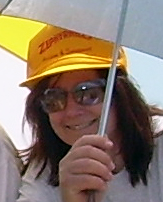 |
The first "recovery" image of SUSANROSE (July 4, 2009 UT; right) following its naming by the IAU/MPC.
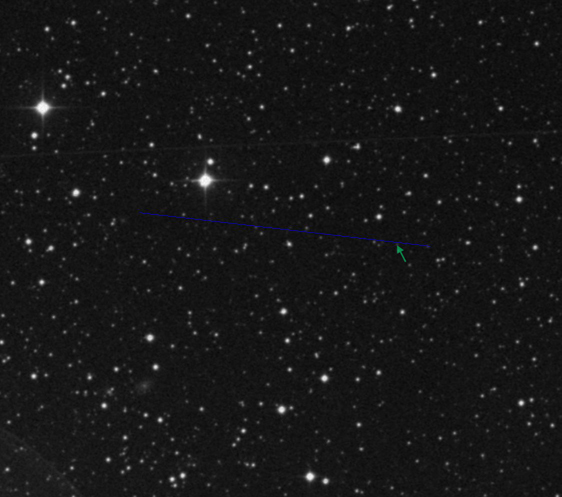 |
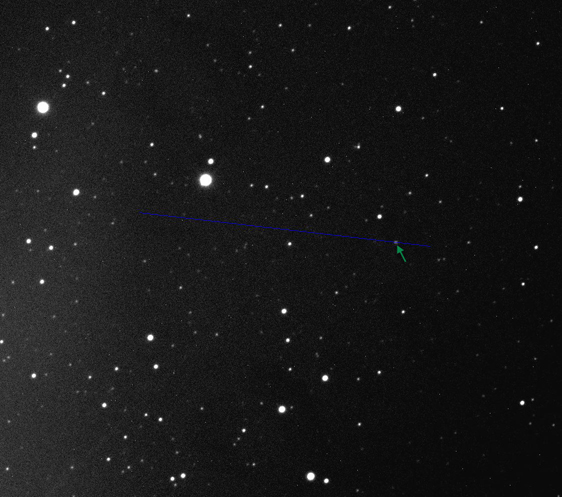 |
Click the "movie" icon to blink the pre-discovery and recovery images.
SUSANROSE on the move!
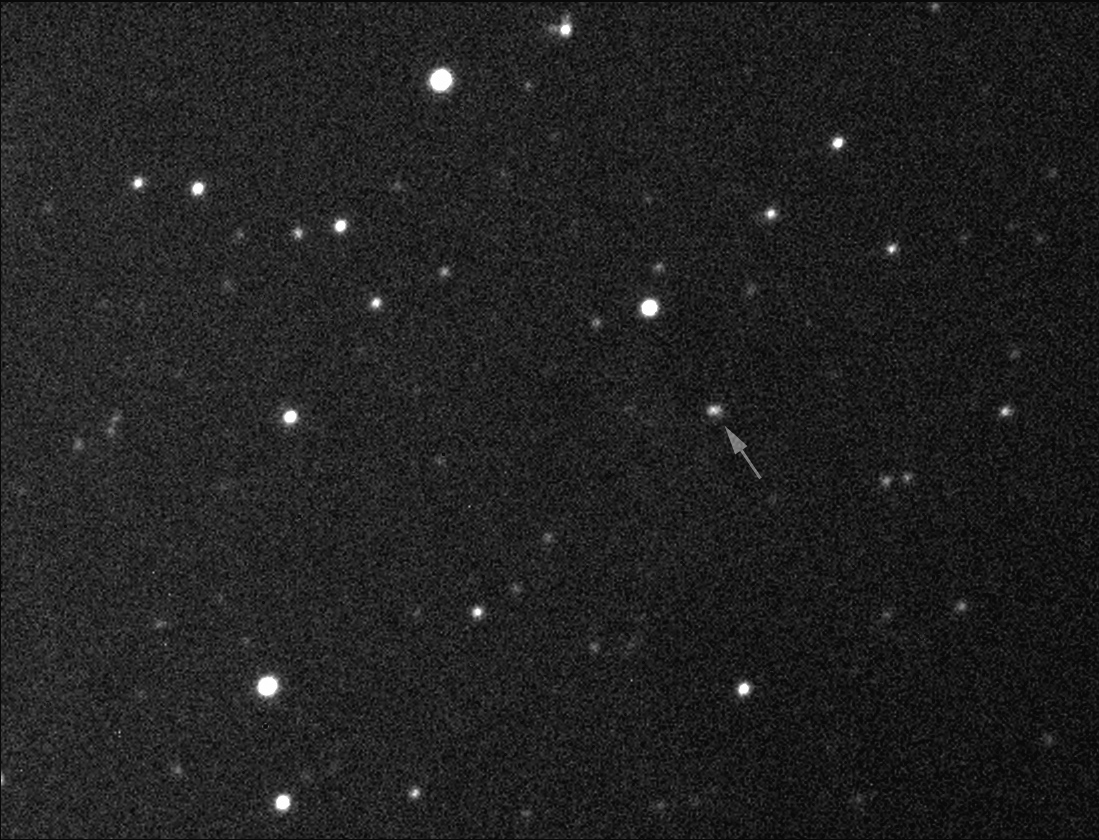
The combined orbital and topocentric Earth parallactic motion of SUSANROSE is apparent in only the 6.5 minutes recovery image (14.5" RC Optical Systems telescope with an SBIG ST-L-11K 3 CCD Camera). Note the image of SUSANROSE is slightly trailed in predominantly the E/W direction (as expected; North is "up" in this frame) while the stellar images in the well-guided exposure are circular.
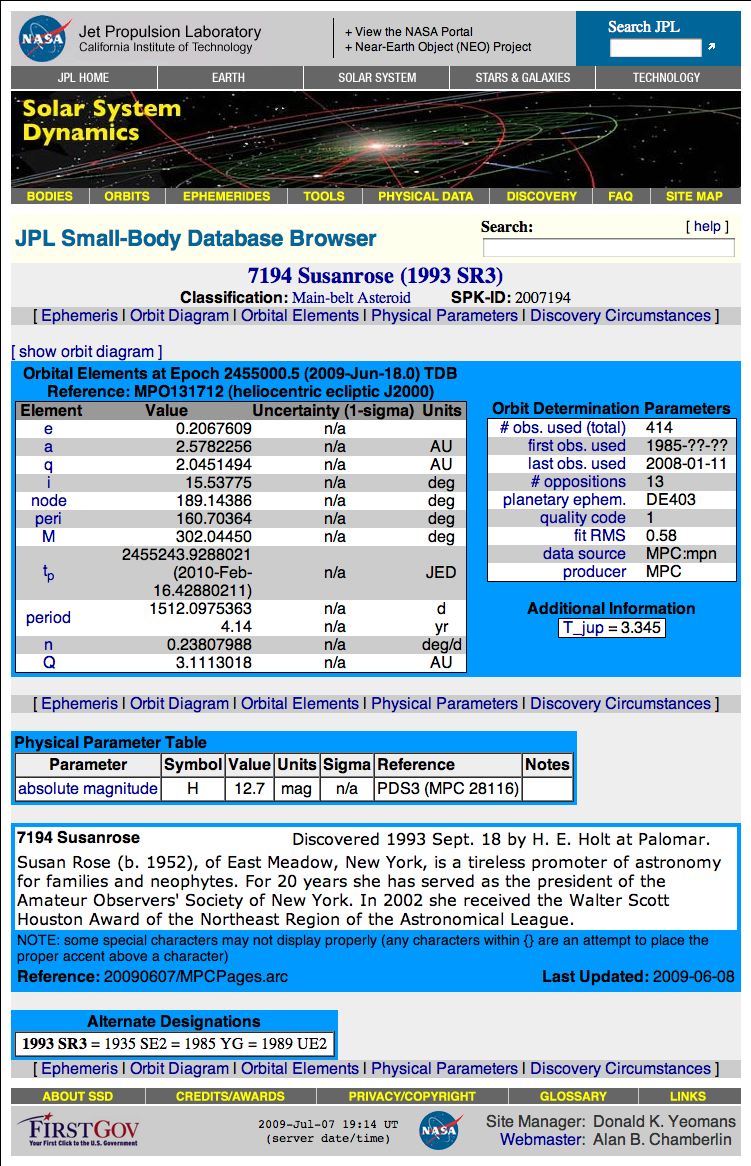
 |
For all you have done for the AOS over these many
years. May your celestial namesake be a beacon in perpituity for
generations of amateur astronomers yet to come. |